In this 4 part series, we are going to cover the key things you need to know about sexual health. This content is brought to you by a specialist in this area, Becky Blackledge, and you can find more information about her work at Get Real Sessions here.
Introduction
This lesson is about consent and specifically about sexual consent. You don’t need to be in a sexual relationship or to be thinking about having sex for this session to be useful to you. Consent is an important part of all our relationships and the concepts in this lesson can help to make all relationships more healthy.
In this lesson we will be developing understanding on the following
- Consent, Sexual Consent and the Law
- How Consent works in Practice
- Having Healthier Relationships
Whether you are doing this lesson on your own or as part of a group it is important to look after yourself and your mental wellbeing.
Subjects like sexual consent can lead to strong reactions due to our views, experiences or things we have heard and seen. Think about who you can talk to if you feel worried or upset about anything in this lesson. There is a list of suggestions at the end of lesson, so you can scroll down for these.
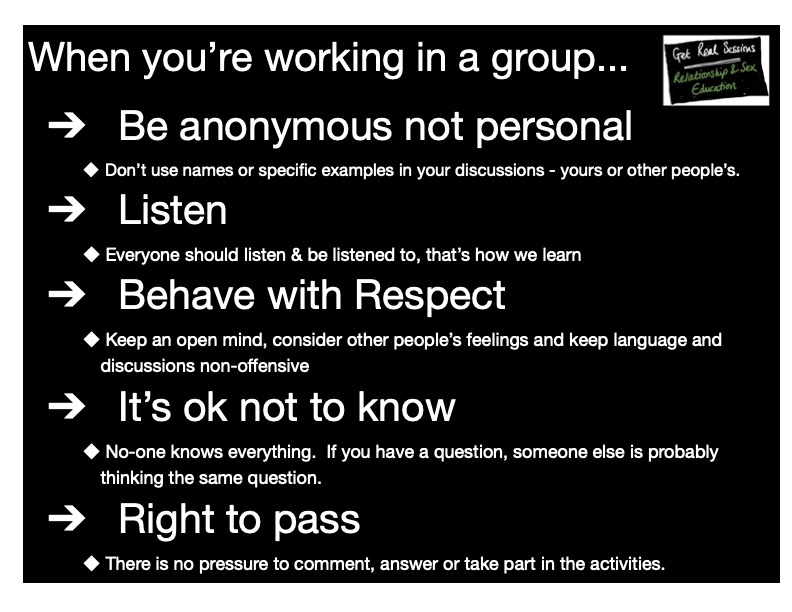
Starter Task (5 mins)
Imagine you are going to a primary school to explain to the children about consent in relationships- general consent, not sexual consent. How would you explain consent in a meaningful and helpful way to a 5 year old?
Write a few sentences or key words that you could use to help you do this.
- Think about the language you would use and an example you could give to help them really understand what consent means in their 5 year old relationships.
When we have to simplify a concept, it forces us to focus on the core (or the heart) of the idea or behaviour.
Section 1: Consent, Sexual Consent and the Law
Task One – Capacity (10 minutes)
1. What do you think could affect someone’s capacity* to give sexual consent? Write down everything you can think of and why this could affect someone’s capacity to give sexual consent. (3 mins)
(*capacity is what a person is able to do or understand; the abilities or skills they have)
2. Have a look at this list of things that could affect someones capacity to give consent (2 mins)
3. Does anything on this list surprise you? Write down any thoughts or opinions you have on these. (3 mins)
4. Consent is an essential part of sexual activity. Being aware of someone else’s situation and needs, as well as our own takes awareness and self control. Do you think of self control and awareness as part of sexual activity? (2 mins)
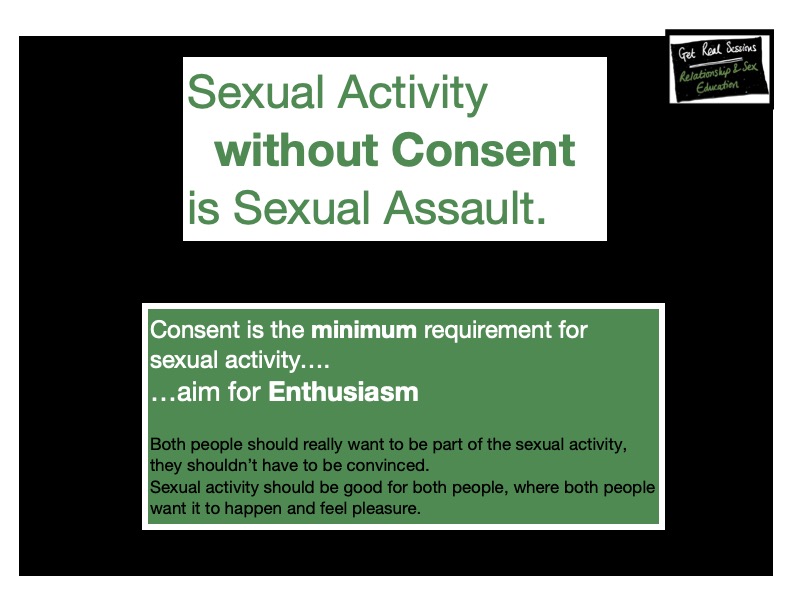
Section 2: Consent in Practice
Task Two – Is this consent? (10 minutes)
1. Look at this table – draw 2 columns and sort into which are examples of consent and which are not? (5 mins)
Is this sexual consent?
| ‘Does that feel good?’ | ‘That hurts.’ | Not saying anything |
| ‘Stop. No’ | ‘What do you want?’ | ‘Yes, More’ |
| Someone kissing you back | Assuming the same as last time | Someone trying to move away |
| ‘Can I touch you?’ | ‘I like that’ | ‘You like that don’t you’ |
2. Click here to reveal answers along with brief explanations. Reflect on your answers – would you move anything? Did anything surprise you or show you a different perspective? (5 mins)
Task Three – Expectations (10 mins)
Expectations can affect people’s behaviour, particularly around sex and sexual activity.
1. Have a look at these six statements and think about whether you agree, disagree or it depends. If you are working as a group, look at the statements together and discuss what people think.
2. Once you have thought about or discussed the statement, click next to get some thoughts about consent in this situation. Repeat for each statement.
3. Do you think expectations can affect sexual consent? How could this affect people’s feelings and behaviour? Think about cultural, social, media and religious expectations.
Section 3: Healthy Sexual Relationships
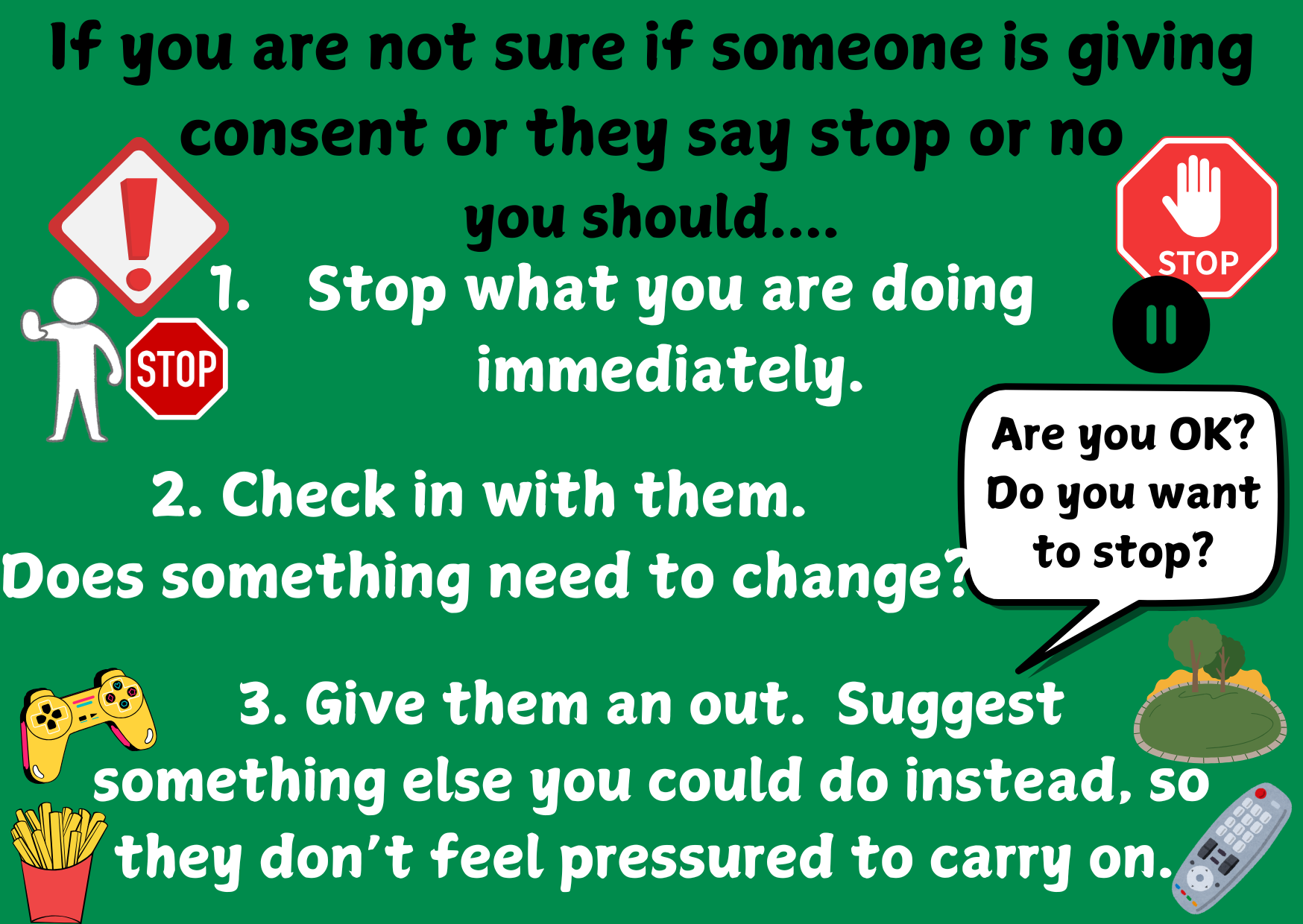
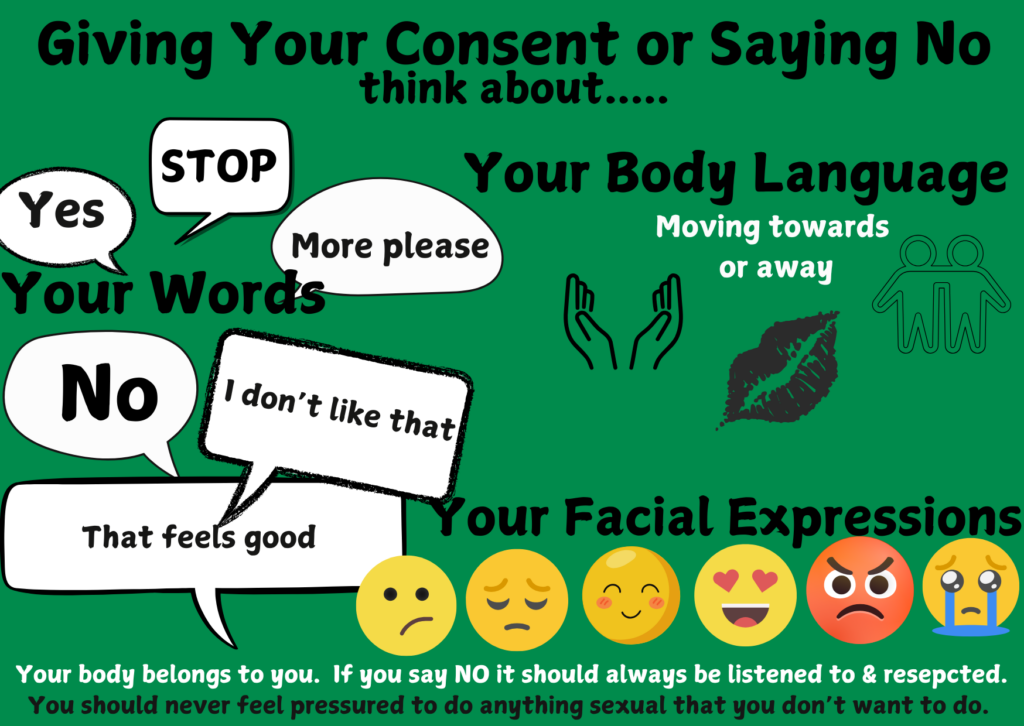
We all need help and support sometimes and if anything we have talked about has made you feel worried, angry, upset or made you think about something you have seen, heard or experienced yourself that you don’t think was ok, please talk to someone.
You could talk to a friend, someone in school or college or another adult that you trust. It can be difficult but it’s important that you get the help and support you need.
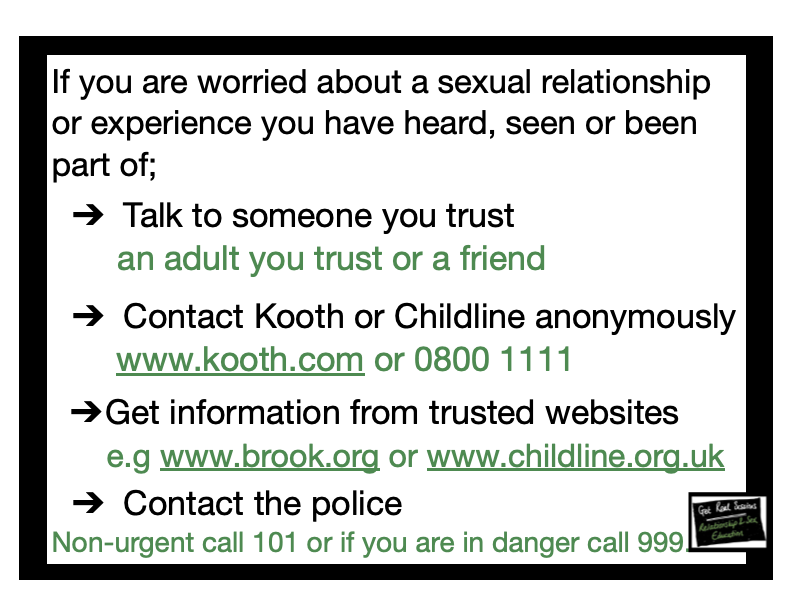
This has been part 1 of a 4 part section covering Sexual Health. Click the button below to move onto the next part
